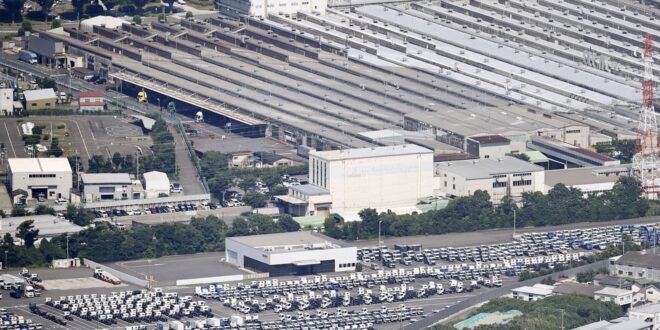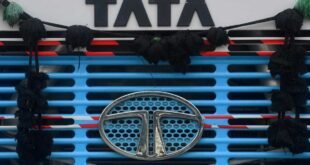Strategic Shift in Production for Global Expansion
Japanese truck manufacturer Isuzu Motors Ltd. is exploring the possibility of relocating the production of its light-duty trucks from its facility near Tokyo to the United States by 2028. This decision is driven by the need to mitigate the impact of tariffs imposed by former U.S. President Donald Trump, according to Shinsuke Minami, the company’s president.
Minami emphasized that the move aims to meet the rising demand for trucks, particularly as online shopping and delivery services continue to grow. He highlighted that the production capacity at the Fujisawa plant in Kanagawa Prefecture will not be reduced, as the company seeks to expand its global market share.
“Although some components will still need to be exported from Japan when manufacturing in the United States, we aim to increase our local procurement rate,” Minami stated. “We need to carefully evaluate the effects of tariffs on our profits.”
Currently, Isuzu sells between 30,000 and 40,000 units annually in the U.S. Approximately 20,000 of these vehicles are produced by a local partner, while the rest are exported from the Fujisawa factory.
In addition to this potential shift, Isuzu is actively expanding its presence in the U.S. market. The company is currently building a new factory in South Carolina, dedicated to the production of mid-size and electric trucks. This project is expected to cost around 43 billion yen ($290 million) and is set to start operations in 2027. The facility will also incorporate the production of small trucks starting in 2028, with a target of manufacturing 50,000 units per year by 2030.
Isuzu is also investing in advanced technologies to stay competitive. The company plans to allocate approximately 7 billion yen to create a test course in Mukawa, Hokkaido, to trial autonomous driving technology. This initiative is scheduled to begin in fiscal 2027.
Key Developments and Future Plans
- Production Relocation: Considering moving light-duty truck production to the U.S. by 2028 to reduce tariff impacts.
- Market Demand: Aiming to meet increasing demand for trucks due to growth in e-commerce and delivery services.
- Global Expansion: Planning to maintain production capacity in Japan while expanding globally.
- Local Procurement: Intending to boost local sourcing in the U.S. to offset some import costs.
- Tariff Analysis: Carefully assessing the financial implications of tariffs on overall profitability.
Investment in Technology and Infrastructure
Beyond its manufacturing plans, Isuzu is making significant investments in research and development. The company is setting up a dedicated test course in Hokkaido to explore and refine autonomous driving technologies. This initiative reflects Isuzu’s commitment to innovation and staying ahead in the evolving automotive landscape.
The company’s strategy highlights a dual focus: adapting to changing market conditions and leveraging technological advancements to drive future growth. By diversifying its production locations and investing in cutting-edge technologies, Isuzu aims to remain a key player in the global truck market.
As the automotive industry continues to evolve, Isuzu’s proactive approach underscores its determination to navigate challenges and capitalize on opportunities in both domestic and international markets. With plans to expand production, enhance local sourcing, and invest in autonomous technologies, the company is positioning itself for long-term success.
 Info Malang Raya Its All About World News
Info Malang Raya Its All About World News



